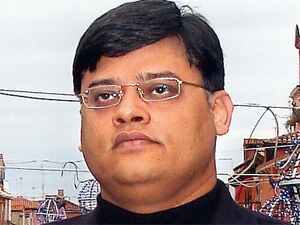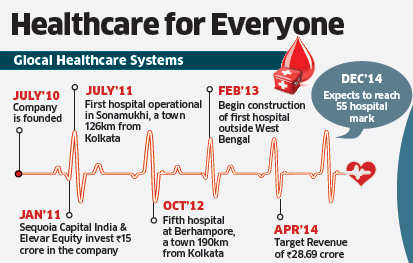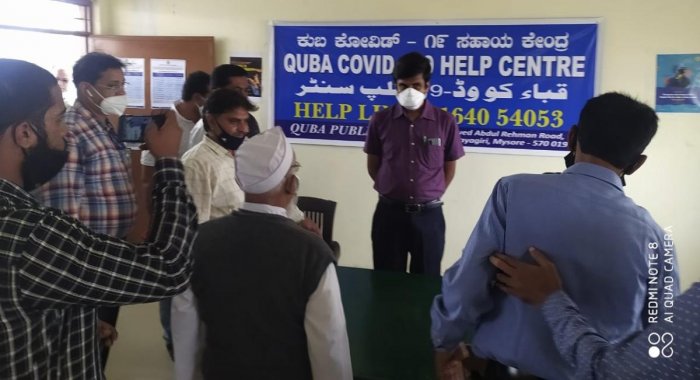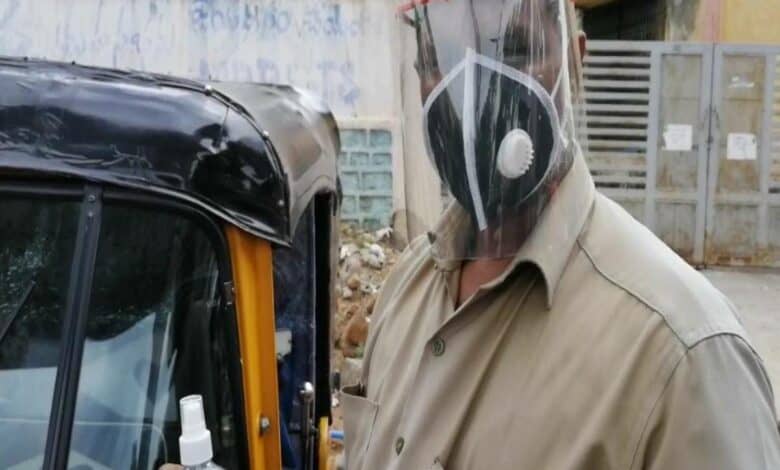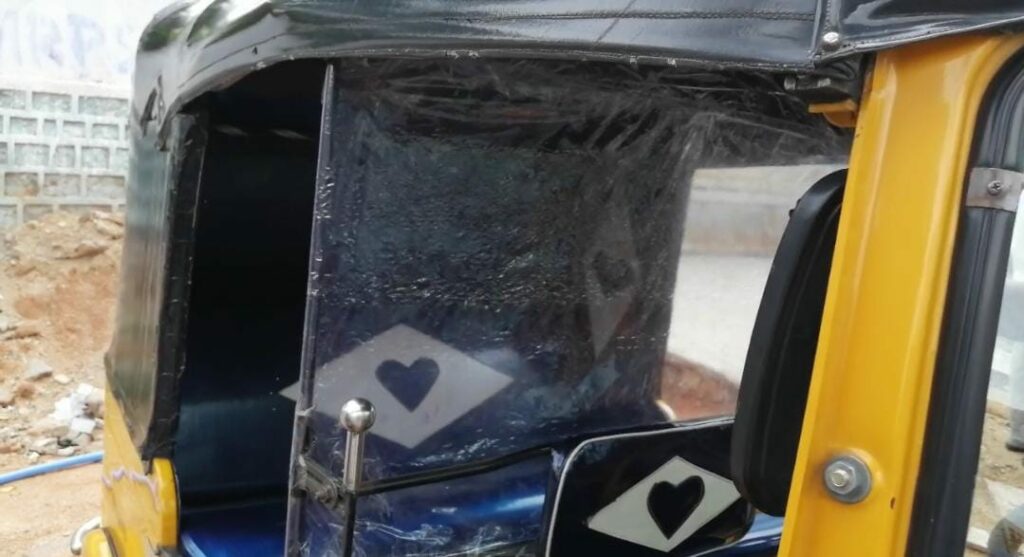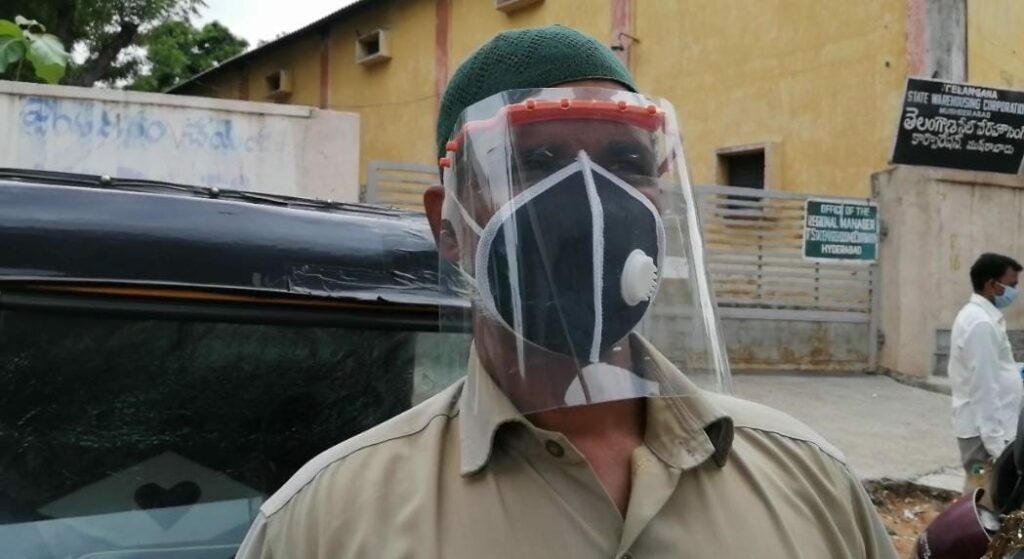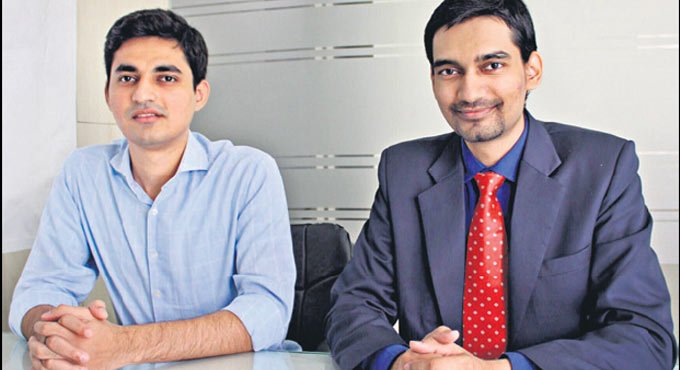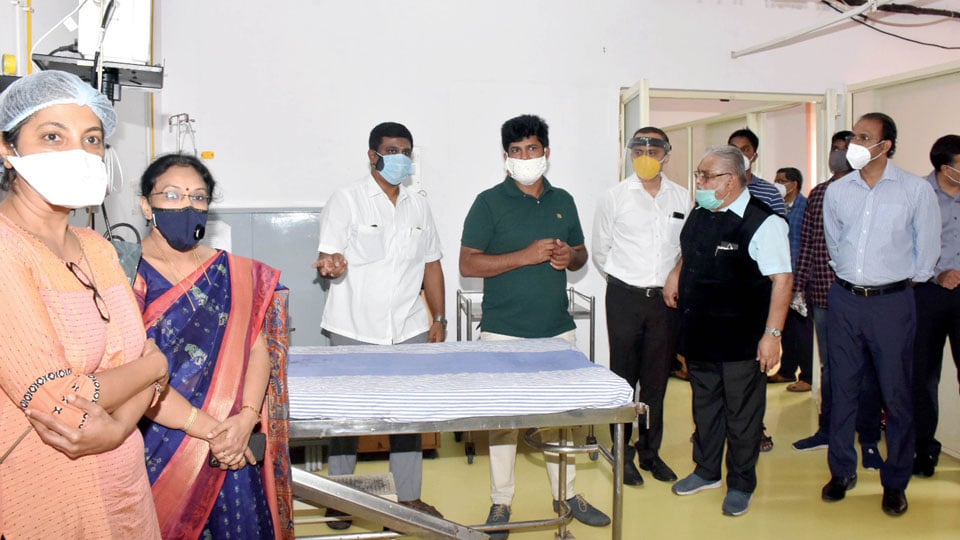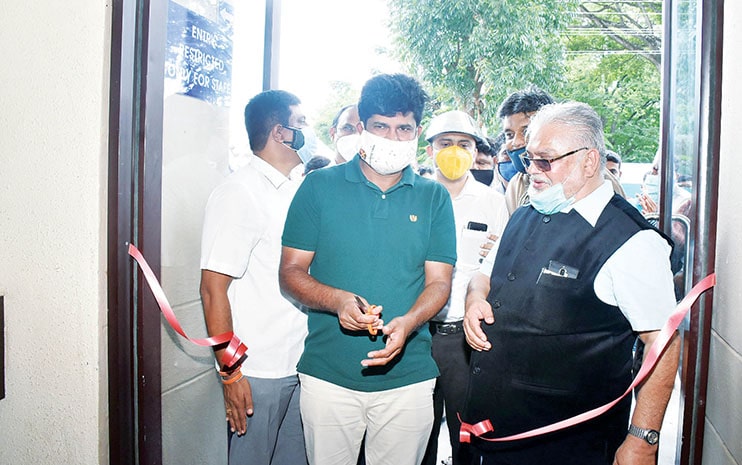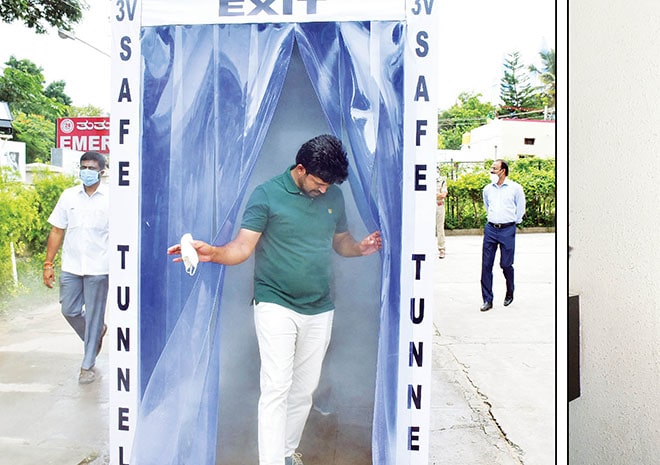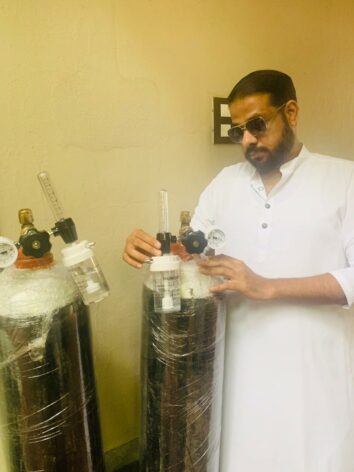Srinagar, JAMMU & KASHMIR :
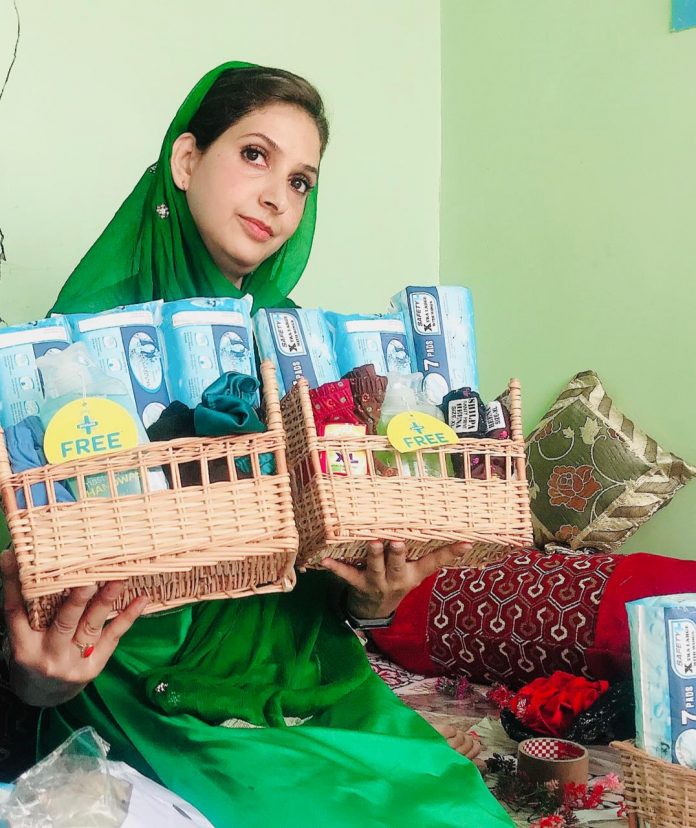
Irfana Zargar was settling in after a long day at work when she received a desperate call from a woman asking for sanitary napkins. Despite the lockdown, Irfana set off to deliver the napkins in person. In a dilapidated house in the downtown locality of Srinagar, she met Sabia Khan who was in a wheelchair. Sabia was the one who had made the call. Due to the restrictions imposed by the coronavirus lockdown, Sabia was unable to buy essentials for herself.
Five years ago, Irfana – who stocks public toilets in Kashmir with sanitary napkins, took an initiative to help Kashmiri women meet feminine hygiene needs. She would prepare an ‘Eva Safety Door’ kit consisting of sanitary napkins, underwear and handwash, for women who cannot afford to buy them. All the arrangements are done from Irfana’s personal savings although, she says, a lot of people are now coming forward to help her.
“Menstruation is a natural phenomenon and I don’t understand why people shy away from talking about it. Some women do not buy pads because they feel ashamed. I want to change this. We have been asked to stay silent all our lives, enough is enough,” says 28-year-old Irfana who works as a Helpline Assistant in Srinagar Municipal Corporation on a consolidated-basis.
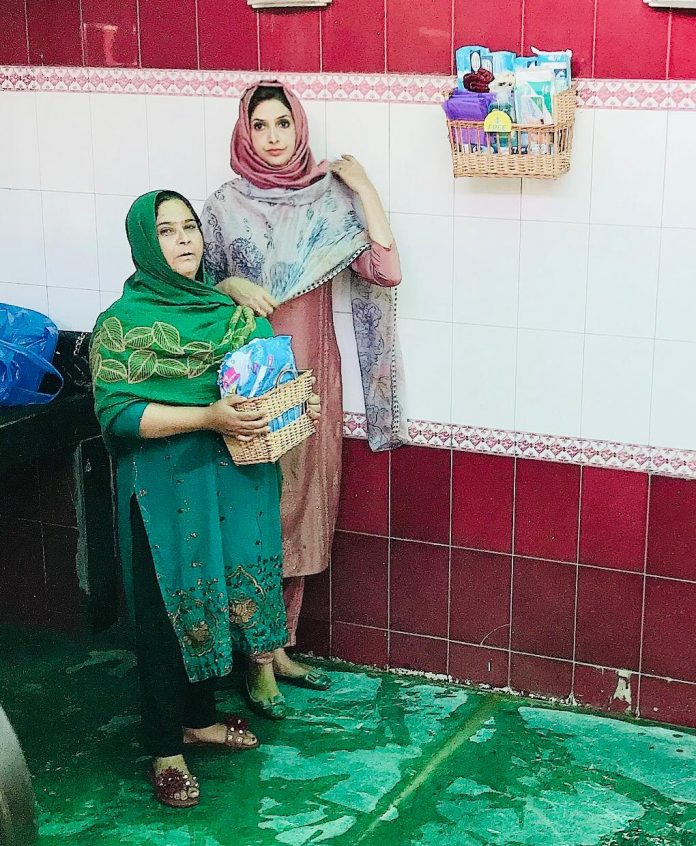
Providing kits to women in Covid wards
Irfana came across the case of a woman being treated for coronavirus in a hospital in Kashmir. Due to unavailability of sanitary napkins, the woman was forced to wear a cloth pad cut out of a curtain during her menstrual cycles. Shocked by the incident, Irfana prepared several kits and distributed them in different wards of the hospital.
On the onset of coronavirus lockdown, Irfana received hundreds of calls from women asking for kits as they could not buy pads from the local stores. As people were hoarding up essentials in the initial days of lockdown, a shortage of menstrual products was reported from all over the country. Apparently, it was not looked upon as an essential commodity. When a countrywide lockdown was imposed in India, pads did not make it to the list of essentials, the delivery of which was allowed despite restrictions. Only when the grocery stores and chemist shops ran out of supplies did the government deemed it a necessity.
“I was very anxious at that time. Not everyone can afford to hoard. Also, hospitals should take special care of stocking sanitary napkins. Pandemic or not, periods do not stop,” says Irfana.
According to Irfana, she delivered 19000 sanitary napkins and 16 Eva Safety Door kits during the lockdown. Even then, she could not reach many women due to restrictions on movement. After meeting them in person, Irfana would make sure that they received sanitary napkins every month.
“It was a complete mess. There were days when I could not help these women and it was starting to take a toll on my mental health. This was when I realized that buying sanitary napkins is a privilege a lot of us cannot afford,” says Irfana.
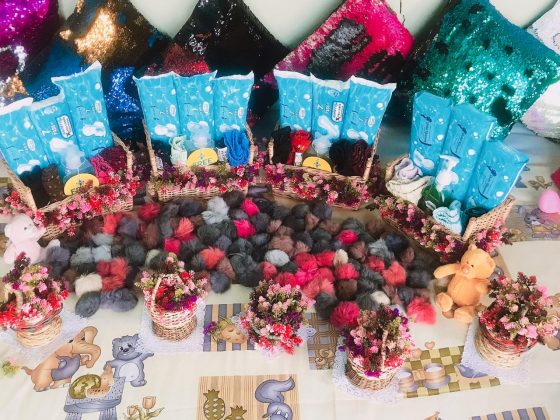
Unaffordable for people with lower incomes
17-year-old Zainab (name changed) lives in a one-storey house in Srinagar with her parents. Her father, a daily wager, experienced financial constraints as his income was seriously affected during the lockdown. Trying to make ends meet, her family struggled to survive the pandemic. Zainab could not muster the courage to ask her parents for money to buy pads.
“One packet of sanitary napkins costs around 40 rupees and you at least require two or three packs a month. For some people, it might be a small cost but for us, it meant a day’s meal. I had no option but to use cloth and cotton,” says Zainab.
Irfana says that under the Pradhan Mantri Bhartiya Janaushdhi Pariyojna (PMBJP), sanitary pads were being sold for Rs 1 per pad at Janaushadhi Kendras. Despite this many women are still unable to make use of such schemes due to lack of awareness.
Zainab is thankful that her father managed to find work after the lockdown. Some of her friends are still facing hardships and continue to use cloth. According to a report of BBC, only 15% of girls had access to sanitary napkins during the lockdown.
“When it comes to food or menstrual products, the obvious choice would be food. But I am happy that I am able to buy pads again,” says Zainab.
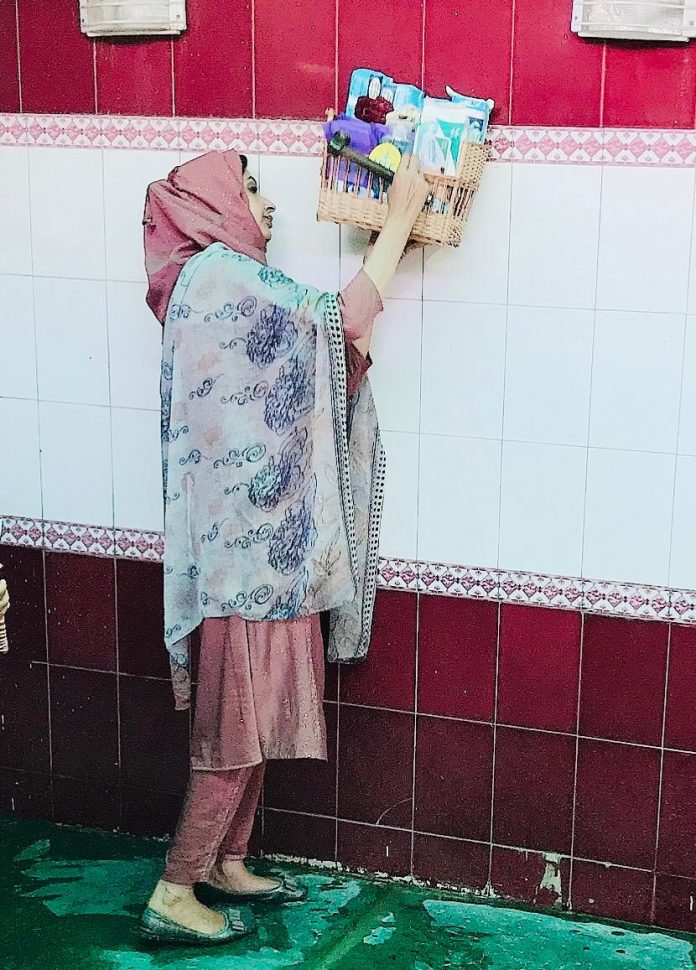
Period shaming and Menstrual health
Irfana’s journey started in 2014 when she was walking the streets in one of the busiest places in Srinagar. She got her period and was unable to buy a napkin due to lack of money. Going inside a public washroom, she was appalled to see its condition.
“There was no soap and water. I had no option but to travel like this. Period shaming is so common here and in case you have a stain, you will be landed with insults,” recalls Irfana.
Since that day, Irfana made sure to donate sanitary napkins to public washrooms. Till date, she stocks around 15 washrooms in Srinagar district. After losing her father, Irfana wanted to make him proud by helping people and so she ventured out to help women in need.
Talking to TwoCircles.net about the harmful effects of using dirty or unsterilized cloth during periods, Seema Zahra, a gynaecologist based in Kashmir says, “It can be very dangerous and can cause serious health issues. It can expose them to infections which can later turn out to be more sinister.”
Dr Seema says most of the patients that come for treatment related to this problem are from lower-income groups. Due to their financial state, they are forced to look for alternatives like rags and cloths.
Even though Irfana has not received her salary for months now, she is adamant about working for the cause of women. She says these women look up to her and she cannot abandon them in these tough times.
“I have prepared more kits and I will be distributing them soon. It is important to spread awareness about menstrual hygiene and I will keep doing so no matter what,” says Irfana.
source: http://www.twocircles.net / TwoCircles.net / Home> Indian Muslim> Jammu & Kashmir> Lead Story> TCN Positive> Women / by Asma Hafiz, Twocircles.net / October 30th, 2020
